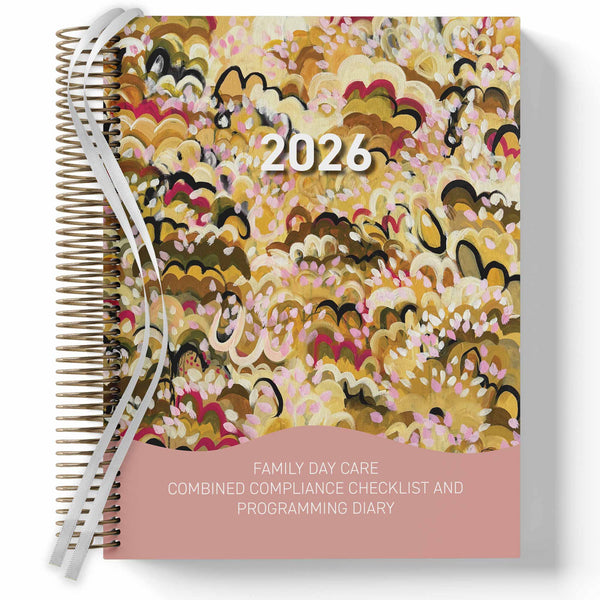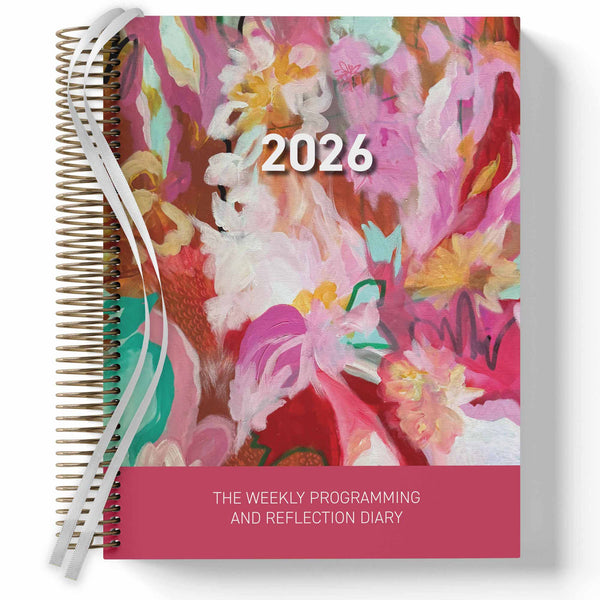Butler Buzz
-

What's New to 2026 at Butler Diaries
Our 2026 collection is here, and it’s packed with thoughtful updates, new designs, and flexible tools to support your documentation, planning, and day-to-day organisation. Whether you’re an Educator, Educational Leader, FDC Coordinator, Cook, Tradie, or Centre Manager, here’s what’s new for 2026.
-

Documenting Developmental Milestones and Interests in Early Childhood Education
In this article, we explore why documenting both developmental progress and interests matters, and share practical, real-world strategies for collecting and recording this vital information.
-

How to Collect Child Input in Early Childhood Education and Care
How do we gather this input consistently, especially in the hustle and bustle of a busy early learning environment? Here are practical examples of how to collect child input, with purposeful use of tools.
-

A Closer Look at the Learning Data/Jottings Reflection Box in Your Programming Diary
It’s easy to record observations and then move quickly onto the next experience. But what truly deepens our practice is what we do with that information. The Learning Data or Jottings space in your diary isn’t just a placeholder for notes—it’s a tool for meaningful reflection, insight, and intentional planning. Used thoughtfully, it becomes the bridge between what was and what could be, allowing you to refine your practice, respond to children’s evolving interests, and ensure every child’s voice is heard.
-
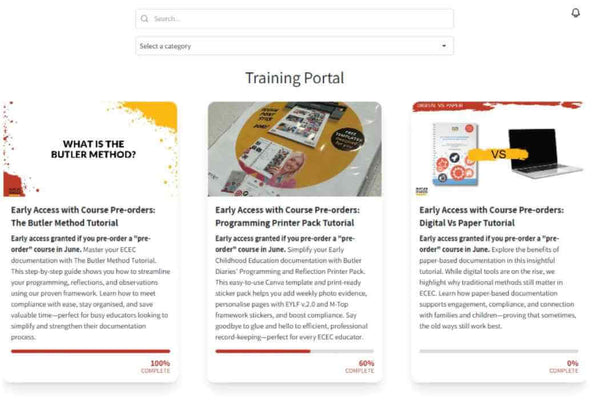
Training Portal Guide and FAQs
The Butler Training Portal has been developed as another avenue of support for our customers. Here's everything you need to know...
-

Where is the Tradie Diary? The Tradie Diary Has a New Name: The Construction Diary
If you’ve relied on The Tradie Diary to stay on top of your projects, don't worry, we haven't taken it away - we've just revamped it. The Tradie Diary has now been renamed to The Construction Diary—but rest assured, it’s still the same great diary that tradies across Australia know and trust.
-

50 ways to use a notebook as an early childhood educator
Your educator notebook is an absolute ESSENTIAL in ECEC, and now you can enjoy stunning guest artist educator notebooks that match your Educator Diary. Here are 50 ways to use your notebook to help clear your mind and keep you on track.
-

Tips for Using the Monthly Programming and Reflection Spread in the Family Day Care Combined Compliance Checklist and Programming Diary
Tips for Using the Monthly Programming and Reflection Spread in the Family Day Care Combined Compliance Check and Programming Diary
-

Tips for Using our Central Outdoor Weekly Programming and Reflection Diary
Tips for Using our Central Outdoor Weekly Programming and Reflection Diary - Updated 2025
-
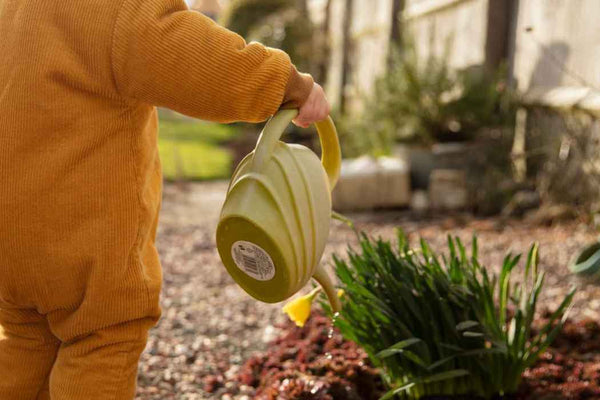
Embedding the 3 Dimensions of Sustainability Through the 7Rs in ECEC Activities
To bring these concepts to life for children in ways that are meaningful, educators can use the 7Rs of sustainability: Refuse, Reduce, Reuse, Recycle, Repair, Respect, and Reflect. Below, we’ll explore practical experiences that align the three dimensions of sustainability with each of the 7Rs.
-

From Frustration to Flow: Managing Challenging Behaviours with Connection
Every educator in Early Childhood Education and Care has experienced moments of frustration when dealing with challenging behaviours. Whether it’s frequent meltdowns, defiance, or disruption, these moments can derail your day—and your documentation. But challenging behaviours are more than just difficult moments; they’re opportunities to connect, understand, and support emotional development.
-

What If They’re Not Interested? Supporting Children’s Voice in Planning
One of the core principles of Early Childhood Education and Care is listening to and responding to children’s voices. But what happens when those voices aren’t clear—or when children seem disengaged, disinterested, or just not giving you anything to go on? This is a common challenge for educators, especially when trying to create meaningful, child-led programs that reflect the EYLF v.2.0’s emphasis on agency and identity. Here’s how to support and capture children’s voices—even when they’re quiet.
-
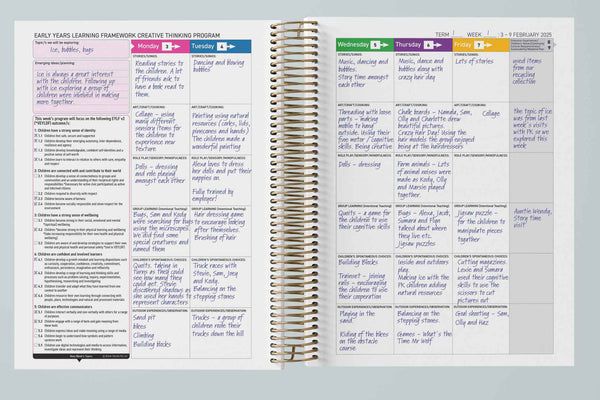
EYLF v.2.0: 5 Small Changes That Make a Big Difference
The good news? You don’t need to overhaul your programming to align with the updated framework. These five small changes can have a big impact—both in compliance and, more importantly, in the quality of learning experiences for children.
-

What Does Cultural Responsiveness Actually Look Like in Practice?
Cultural responsiveness is more than a buzzword in Early Childhood Education and Care; it’s a core principle under EYLF v.2.0. While many educators understand the importance of celebrating diversity, the practical application often feels vague or tokenistic.
So, what does it really mean to be culturally responsive?
-
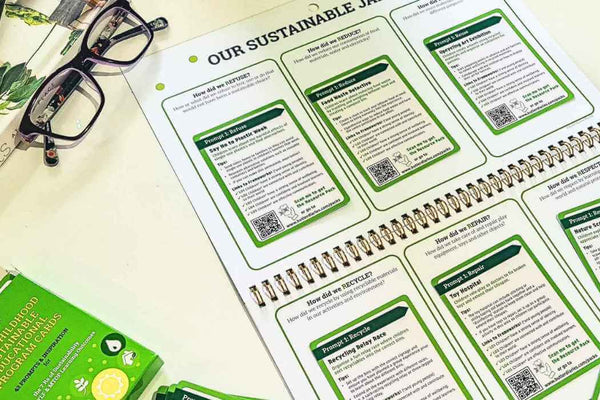
Embracing the 7 Rs of Sustainability in Early Childhood Settings
Sustainability in early childhood education isn't just about recycling—it's about nurturing a mindset that supports care for our environment, community, and future generations. The 7 Rs of Sustainability—Respect, Reduce, Reuse, Recycle, Repair, Refuse, Reflect—offer a holistic and empowering approach to embed sustainable practices in daily routines, fostering environmentally responsible citizens from the earliest years.
-

How Do I Fit Everything In? Time-Saving Tips for Programming and Documentation
Educators often find themselves balancing the demands of programming, observations, family communication, and spontaneous learning—all while nurturing the development of young children. One of the most frequent pain points we hear is: "How do I fit everything in?" This article offers realistic, time-saving strategies for educators who want to stay on top of their documentation without compromising the quality of their interactions with children.
-

Free Easter Program for ECEC: A Week of Play, Discovery and Learning
To make planning easier, we've created a free downloadable outdoor Easter program that is jam-packed with creative, play-based Easter ideas under each heading of the Central Outdoor Weekly Programming and Reflection Diary.
-

A Guide to Learning Trajectories in Early Childhood Education
Learning trajectories are a research-based framework that outlines the progression of children’s development across key learning areas. They describe how children typically learn and grow in different domains and provide educators with a roadmap to support each child’s journey... check out how they can help you.
-
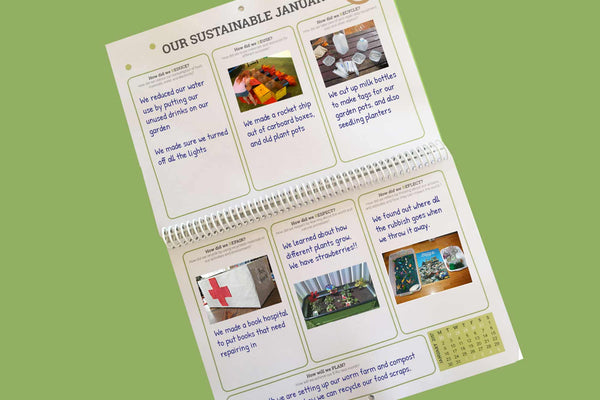
12 Engaging Bottle Cap Games for Early Childhood Education and Care (ECEC) – Linked to EYLF
Recycling everyday materials like bottle caps into fun, educational games promotes sustainability and hands-on learning in early childhood settings. These activities foster creativity, problem-solving, and key developmental skills while aligning with the Early Years Learning Framework (EYLF) v2.0.
-
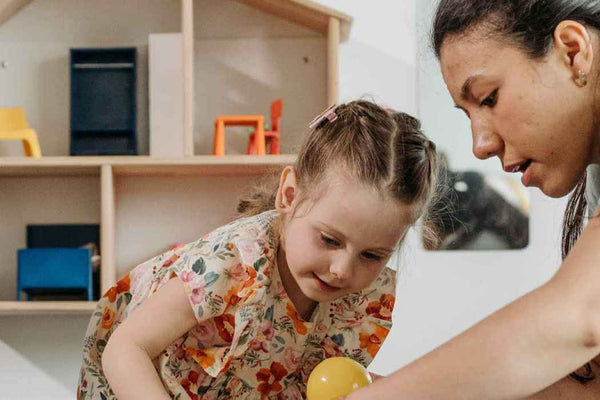
Does the Whole Service Need to Use the Same Programming Method?
"Does our entire service need to use the same programming method?" The short answer is no—but consistency, collaboration, and alignment with the Early Years Learning Framework (EYLF) v2.0 are key factors to consider.
-

2025 and 2026 Sales Announcements and FAQs
Find out the plan for 2025 and 2026 Butler Diaries sales so you don't miss out on a bargain!
-

How to Use Butler Diaries' Programming Tools for Minimum Documentation but Maximum Compliance
It is easy to identify one of the biggest strains on Early Childhood Educators... Paperwork. With constant updates to frameworks and regulations and no clear, straight forward answer on what needs to be documenting, services often end up over-documenting in order to try to meet their compliance requirements.
-

Understanding the EYLF Practices in Early Childhood Education and Care
EYLF outlines the EYLF Practices that guide educators in their decision-making. Understanding these practices ensures that educators create meaningful, engaging, and inclusive learning environments that foster children's holistic growth.
-

Understanding the EYLF Principles in Early Childhood Education and Care
EYLF is the foundation of early childhood education in Australia. Central to this framework are the EYLF Principles, which provide a strong foundation for high-quality education and care. Understanding these principles is essential for educators to create meaningful learning experiences that support children's holistic development.
-

Does your Programming Diary Support Critical Reflection?
Reflection is a key practice in ECEC, helping educators assess and improve their teaching strategies, interactions, and environments. However, there is a distinct difference between reflection and critical reflection—both are important, but critical reflection goes deeper, prompting meaningful change and professional growth. By using Butler Diaries, educators can structure their reflective practice and ensure they are engaging in ongoing critical reflection. Let’s explore the differences between reflection and critical reflection and how to use your Diary effectively.
-

Moving Beyond 'Good Boy' or 'Good Girl': Rethinking Praise in Education
As educators, we are often reminded of the profound impact our words can have on children’s self-perception and motivation. Research and experience suggest that it’s time to rethink how we use praise to support children’s development effectively.
-

How to Do Programming in Childcare: A Comprehensive Summary Using EYLF v.2
Programming in ECEC involves creating and implementing a curriculum that supports children’s learning and development. It's essential to align your programming practices with the new standards to ensure high-quality education and care. Here's a breakdown to support you.
-

Empowering Children's Voices: The 'Children's Voices Diary' from Butler Diaries
In Early Childhood Education and Care (ECEC), fostering children's agency is a fundamental principle of the Early Years Learning Framework (EYLF) and My Time, Our Place Framework (MTOP). Encouraging children to express their thoughts, feelings, and reflections not only builds their confidence but also strengthens their sense of belonging and identity. The Children’s Voices Diary from Butler Diaries has been designed with this in mind, providing an engaging and structured way for children to document their experiences, thoughts, and aspirations. See how this Diary can foster children's development, learning, and overall wellbeing, as well as support your program.
-

Top 5 Programming Methods for Early Childhood Education and Care
Effective programming in Early Childhood Education and Care (ECEC) is essential for ensuring quality learning experiences and meeting the diverse needs of children. With the introduction of EYLF v.2.0, educators are increasingly seeking structured yet flexible programming methods that support documentation, critical reflection, and compliance. Here, we count down the top five programming methods, culminating in the best solution for early childhood professionals.
-

Top 5 most economical printers for early childhood documentation
Selecting the right printer is crucial for Early Childhood Education and Care (ECEC) settings, where documentation is both frequent and essential. Balancing cost-efficiency with functionality ensures that educators can maintain thorough records without straining budgets. Below are five economical printers well-suited for ECEC documentation:
-
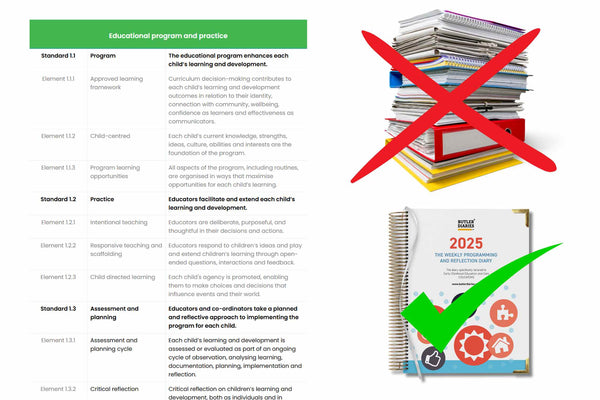
Streamlining and Reducing Duplication in Documentation
Documentation plays a crucial role in Early Childhood Education and Care (ECEC), enabling educators to track and reflect on children's learning. However, misconceptions about documentation requirements under the National Quality Framework (NQF) can result in unnecessary administrative burdens and educator burnout. Understanding regulatory obligations and adopting efficient documentation practices can help streamline processes and reduce duplication while still meeting compliance requirements.
-
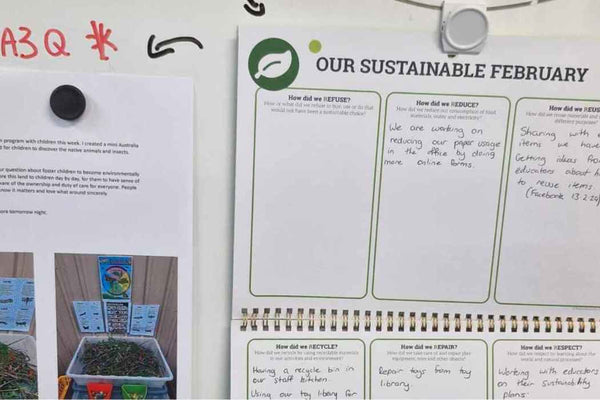
The Three Dimensions of the Sustainability Principle: Embedding and Documenting in the Early Years
EYLF V2 introduces 'Sustainability' as a core principle, encompassing environmental, social, and economic dimensions. Here we break down the Sustainability principle and how to document it.
-

How Can I Incorporate Cultural Responsiveness into My Programming?
Incorporating cultural responsiveness into your programming is essential for fostering an inclusive, respectful, and supportive environment in ECEC. By embedding cultural responsiveness, educators not only reflect the diversity of the children, families, and community but also meet the principles of the EYLF. Here’s a practical guide to embedding cultural responsiveness into your daily practices and programming.









































